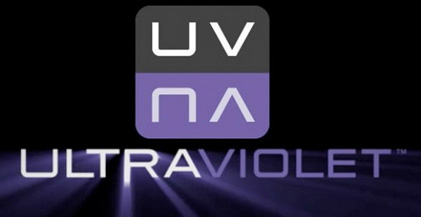|
|
Top 12 Film Industry Stories of 2012: #11Ultraviolet SpectacleBy David MumpowerJanuary 2, 2013
The key difference from the previous Vudu service is that any and all conversions could be accomplished in the comfort of one’s home. All a customer has to do is insert a disc into their DVD drive (CinemaNow does not accept Blu-Ray conversions yet) on their computer. The CinemaNow program verifies the titles then offers the user a choice of an SD copy for $2 or an HD/1080p copy for $5. The set-up is similar to Wal-Mart’s Vudu, only with the added incentive of convenience. Why is Ultraviolet changing the rules after less than a year? The bleak reality is that despite the competitive pricing, few customers took advantage of the Vudu Disc to Digital service. The initial disappointing sales have been blamed on the reticence of users to perform such a transaction at Wal-Mart. Managing the same task in the comfort of one’s home is theoretically more convenient. Such an attempt speaks to the awkward debut of Ultraviolet. The relationships with Wal-Mart, the owner of Vudu, and Best Buy, the owner of CinemaNow, also negate an intended goal of Ultraviolet, eliminating the middleman. There have been a couple of direct attempts to address the elimination of the middleman. In September, Fox made a splashy debut with Prometheus. The $400 million global blockbuster became the first release in their Digital HD program. Even better, the Digital HD had a price point of $14.99, $10 cheaper than the suggested retail price for the Blu-Ray. The underlying premise for this tactic is simple. Weeks prior the home video release of a title, Fox begins to sell an Ultraviolet copy. Consumers who choose not to wait for a physical copy are rewarded with early ownership of a digital license for said film. This is the same bold first step Apple introduced with the debut of iTunes in 2001. The studios involved seek to train consumers away from physical media the same way that Apple destroyed compact disc sales over the past decade. A core philosophy of the Ultraviolet conglomerate is that the service needs to attain quick market penetration in order to accomplish this task. Their 2012 decisions above were predicated upon this philosophy. Despite the bold initiatives, many of which are remarkably forward thinking for Hollywood, the service is not accomplishing its primary goal. By the end of 2012, barely nine million users had adopted the emerging format. For comparison, iTunes has 400 million active users. Not all of those iTunes users purchase movies but the difference in customer numbers is staggering. The idea of the Ultraviolet movie cloud storage may yet prove to be popular. All of the marketing tactics I have mentioned are good ones, unusual for the Hollywood studio system. Attempting to attain as many users as possible in the early days of the service is an admirable goal. The problem is that it hasn’t really worked thus far. Twice as many people watch an episode of a top five-rated television series as have signed up for Ultraviolet. The studios-backed endeavor needs expansive growth in 2013 in order to become a viable cloud service.
[ View other Top 12 Movie Industry Stories of 2012 ]
[ View other BOP Lists ]
[ View columns by David Mumpower ] [ Email this column ]
|

|
|
|

|
Friday, April 26, 2024
© 2024 Box Office Prophets, a division of One Of Us, Inc.


